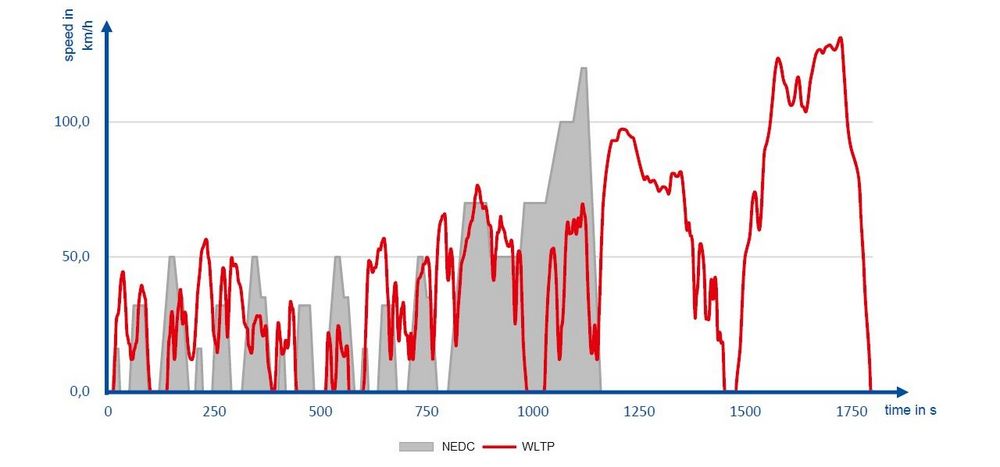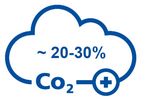Differences between WLTP and NEDC
Standardized test methods determine the fuel consumption and CO2 emissions of motor vehicles as well as their pollutant emissions. Since 1 September 2017, the new test procedure "Worldwide Harmonized Light-Duty Vehi-cles Test Procedure" (WLTP) has been in force for the type approval of new passenger cars in the EU. This is the successor of the "New European Driving Cycle" (NEDC) test procedure valid since 1992.
Why change the test procedure?
The information on the fuel consumption must be determined by an objective and reproducible test method which reflects the actual driving behavior under real conditions on the road. The NEDC test no longer meets this requirement, which lead to large deviations between the calculated and the real consumption in some cases. The test procedure WLTP, on the other hand, is based on real driving data from Europe, USA and Asia and is intended to represent the reality significantly better.
What distinguishes WLTP from NEDC?
The test cycle of the WLTP is very different from that of the former NEDC:

Specifically, this means:


As the WLTP demands more power for the more realistic driving, the estimated fuel consumption and therefore also the CO2 emissions increase by about 20-30% compared to the NEDC. This has also an impact on the vehicle tax, which is calculated on the basis of CO2 emissions, as well as potential penalties for car manufacturers who are unable to comply with the CO2 limit for their fleets.
How does the WLTP influences the lubricant?
The new test procedure increases the pressure on the entire automotive industry to reduce CO2 emissions from vehicles through appropriate activities. Appropriate lubricants must also make their contribution. State-of-the-art engine oils such as our TITAN GT1 LONGLIFE IV SAE 0W-20 already offer potential savings of more than 4% compared to standard products. And the potential is far from exhausted. In the future, modern high-performance lubricants will continue to make a significant contribution to achieving CO2 targets.
